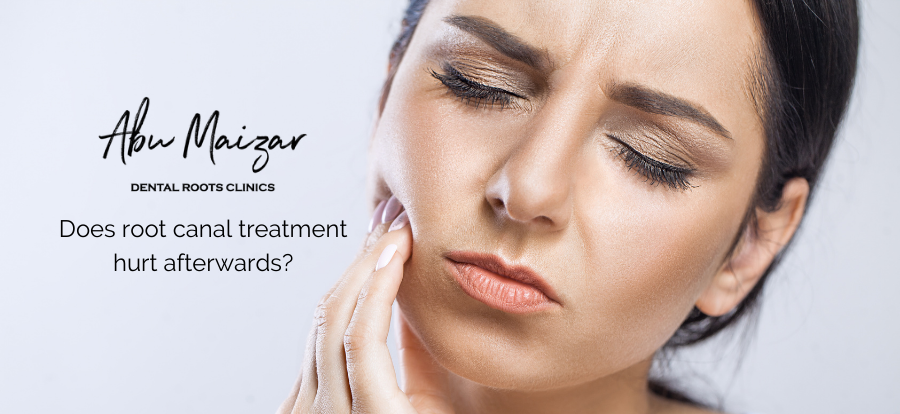abumaizar
administrator | 7 April, 2023
It is common to experience some level of discomfort or pain after a root canal treatment. This is because the procedure involves removing the infected or inflamed pulp tissue from inside the tooth, which can cause some sensitivity and soreness in the area.
However, the level of discomfort varies from person to person and depends on factors such as the severity of the infection, the complexity of the procedure, and individual pain tolerance.
Most people experience some discomfort or sensitivity for a few days after the treatment, but this can usually be managed with over-the-counter pain relievers, such as ibuprofen or acetaminophen. Your dentist may also prescribe pain medication if needed.
It is important to follow your dentist’s post-treatment instructions, which may include avoiding hard or crunchy foods, practicing good oral hygiene, and avoiding smoking or drinking alcohol. If you experience severe or persistent pain after a root canal treatment, it is important to contact your dentist to rule out any complications.
How long does pain last after root canal?
The duration and intensity of pain after a root canal treatment can vary from person to person. It is normal to experience some level of discomfort or sensitivity for a few days after the procedure, which can be managed with over-the-counter pain relievers like ibuprofen or acetaminophen.
In most cases, the pain should start to subside within a few days after the treatment. However, if the pain persists for more than a week or if it becomes increasingly severe, it is important to contact your dentist as soon as possible.
In rare cases, a persistent or severe pain after a root canal treatment can indicate a complication, such as an infection or a damaged nerve. Your dentist may need to perform additional tests or procedures to diagnose and treat the underlying issue. In general, it is important to follow your dentist’s post-treatment instructions carefully and to attend any follow-up appointments as recommended to ensure the best possible outcome.
Can I eat after a root canal?
Yes, you can eat after a root canal, but it is important to be cautious about what you eat and how you eat it.
After a root canal treatment, your tooth and the surrounding area may be sensitive or sore, and it is important to avoid hard or crunchy foods that could irritate or damage the treated tooth. You should also avoid hot or cold foods and drinks, as they can cause sensitivity.
It is recommended to stick to soft, easy-to-chew foods for the first few days after the procedure. Examples of soft foods include soup, scrambled eggs, yogurt, mashed potatoes, and smoothies. You should also drink plenty of water to stay hydrated.
It is important to maintain good oral hygiene after a root canal treatment, so you should continue to brush and floss your teeth regularly, but be gentle around the treated area.
Your dentist may also provide you with specific post-treatment instructions, including recommendations on what to eat and what to avoid, so be sure to follow these carefully. If you have any questions or concerns about what to eat after a root canal, you should contact your dentist for guidance.
Can I brush my teeth after a root canal?
Yes, you can brush your teeth after a root canal, but it is important to be gentle around the treated area to avoid causing any irritation or discomfort.
After a root canal treatment, your tooth and the surrounding area may be sensitive or sore, so it is important to brush gently and avoid putting too much pressure on the treated tooth. You should use a soft-bristled toothbrush and brush in a circular motion, being careful to avoid the gumline around the treated tooth.
It is also important to continue flossing your teeth regularly, but be gentle around the treated tooth to avoid causing any irritation or discomfort.
Your dentist may provide you with specific post-treatment instructions on how to care for your teeth and gums after a root canal, so be sure to follow these carefully. If you have any questions or concerns about how to brush or floss after a root canal, you should contact your dentist for guidance.


